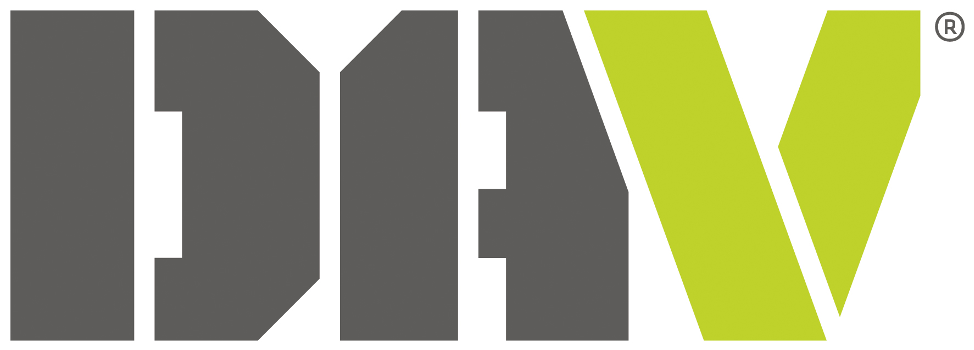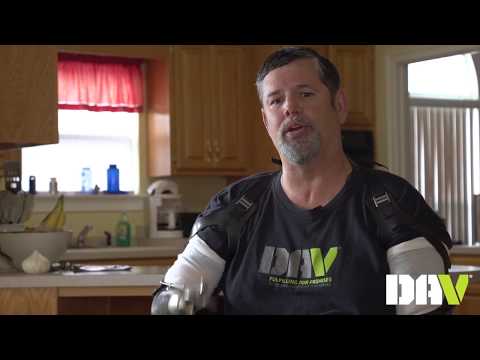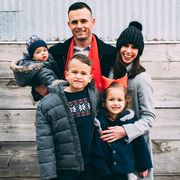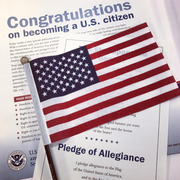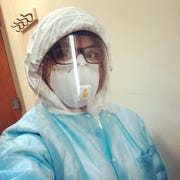Taking on the role of a caregiver for an ill or disabled loved one is a selfless and exhausting task that often requires personal sacrifice and reserves of emotional strength you didn't necessarily know you had. But you're not alone—an estimated 65.7 million Americans have served as a caregiver in the past year. A 2014 RAND Military Caregivers study found that 5.5. million Americans are caring for ill or wounded veterans.
DAV (Disabled American Veterans), a nonprofit that supports more than one million veterans each year with both visible and invisible wounds, describes the caregivers of disabled veterans as informal, unpaid, tireless individuals "who address the many needs of people with serious injuries or illnesses who are medically stable enough to live outside of an institution but lack the strength, functional capability, or cognitive skills to care for themselves on an ongoing basis."
As a caregiver for a disabled veteran, you may be helping them perform basic activities of daily life—bathing, getting dressed, using the restroom, taking medicine—or performing essential routines such as cooking, housework and running errands.
Although some veterans will, at some point, sufficiently recover from the illness and injury that require this support, many will need a caregiver for the rest of their lives. Unfortunately, according to DAV, support for caregivers of disabled veterans is limited and the resources available often have limitations and eligibility restrictions.
We've compiled a short list of resources, along with information on how each could be of assistance to you—use this as a tool to start your search for support and guidance as you navigate your caregiver role.
DAV Unsung Heroes Initiative
This content is imported from youTube. You may be able to find the same content in another format, or you may be able to find more information, at their web site.
DAV created a national campaign to bring awareness to the service of the nation's veteran caregivers—the people the organization refers to as Unsung Heroes. In 2017, DAV conducted an online survey of veterans and caregivers to offer a deeper look into the challenges veteran caregivers face, the support they receive, as well as the gaps that still exist.
DAV uses the findings from this report combined with other research to push for—and gain—public policy changes to expand these critical services to all generations of veterans—DAV is leading the charge for caregivers through these legislative initiatives. The report also contains useful insights for caregivers, especially those who have recently taken on the responsibility, drawn from the experiences of those who have been in this role for many years. Through statistics and personal accounts from real caregivers and veterans, you'll be able to get a sense of what to expect on the road ahead.
LEARN MORE
Volunteer for Veterans
Being a caregiver for a disabled veteran can be emotionally and physically taxing, so it's important to seek help when you need a break. DAV has a huge volunteer program (DAV volunteers donate nearly 5 million hours annually) and a portal that makes it easy for caregivers and veterans to be matched with volunteers in their communities.
How it works: you register for an account on the website, and when you need help from a volunteer, you can post your opportunity—the tasks range from yard work to caregiver respite, home maintenance, and simply spending time with the veterans. Once you post your volunteer opportunity, people in your area will be able to sign up. You can also share the post via Facebook, Twitter, or email.
Program of Comprehensive Assistance for Family Caregivers
Currently, this Veteran Affairs program offers education, resources, and support—including a financial stipend, health insurance, and beneficiary travel (depending on eligibility)—to veterans who "have incurred or aggravated a serious injury in the line of duty on or after September 11, 2001." However, the VA plans to expand the program in summer 2020 to make these benefits available to caregivers of eligible veterans who were injured before 9/11, as well.
If eligible, a veteran can select one primary caregiver and up to two secondary caregivers. If you are the primary caregiver, some of the benefits you may receive include:
- monthly stipend
- access to health care insurance through Civilian Health and Medical Program of the Department of Veteran Affairs
- mental health counseling
- travel benefits when accompanying a veteran to an appointment
- at least 30 days of respite care a year (short term relief to allow someone else to care for the veteran while you take a break)
Building Better Caregivers (BBC)
This online six-week workshop helps train caregivers to provide better care and also provides guidance on how to manage emotions, stress, and your own physical health while serving as a caregiver.
After you complete the workshop, you can connect with other caregivers through the BBC alumni community, too. The workshop is free and serves as a great resource for connecting with other veteran caregivers.
Peer Support Mentoring Program
Being a caregiver for a disabled veteran can be quite challenging, but talking to someone else who can understand and appreciate your experience can be very helpful. The VA created a Peer Support Mentoring Program that connects veteran caregivers to help facilitate support and guidance among one another.
If you're feeling particularly isolated or overwhelmed in your caregiving role, the Peer Support Mentoring Program can help you establish relationships with others who have gone through very similar challenges.
Your local VA Caregiver Support Coordinator (find yours here) can assist you with a referral for a peer mentor.
Veteran-Directed Home & Community Based Service
The VD-HCBS program is a resource that offers a monthly flexible spending budget for goods and services for a severely disabled veteran to safely live at home. The authorization of the budget is based on a needs assessment for the individual, and the service allows veterans to hire and/or provide support to their family caregivers. The program is currently in operation across 50 VA Medical Centers in 28 states, Washington D.C., and Puerto Rico—scroll over the map on this page to see if it's available at your local VAMC.
If VD-HCBS isn't currently offered near you, DAV encourages you to contact your local Veteran Affairs medical center to request a program be established.
Maya McDowell is a Chicago-based writer and editor who covers lifestyle, beauty, and entertainment. When she’s not writing, you can find her reading memoirs, at improv class, or planning her next adventure.
